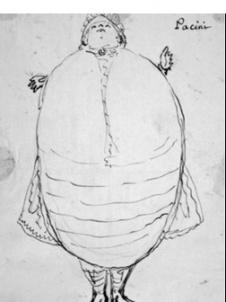
My name is Elsa Jia. I am a third-year student at the University of Toronto pursuing a Bachelor of Arts degree double majoring in Music and Criminology. My research focuses on drawing parallels between the world of castrati singers during the Baroque Era and the Korean Pop (K-Pop) Music Industry from the 20th century onwards. The findings of my research are innovative as they connect two fields separated by time and geography. This research topic occurred to me as I was simultaneously enrolled in HMU450 (Topics in Baroque Music) with Prof. Robin Elliot and HMU316 (Korean Music) with Sangah Lee. As my readings on Baroque castrati expanded, I discovered their similarities with the modern K-Pop industry. Prof. Elliot's flexibility in choosing the final research paper topic for HMU450 allowed me to explore these similarities.
During my research, I consulted books and journals that discuss the Baroque castrati from various perspectives, including sociological, biographical, medical, and pedagogical. Researching the K-Pop industry presented its own challenges, primarily due to the industry's recent proliferation and the scarcity of scholarly articles. Nevertheless, documentaries, interviews, and analyses of music and stage performances helped to elucidate the industry's operational principles. Observing the K-Pop fandom community online also provided valuable insights into the relationship between fans and artists, especially through social media channels such as X, Instagram, Bubbles, and Weverse. The latter two platforms, designed exclusively for K-Pop fan and artist interactions, offer paid memberships that allow fans to send messages directly to artists. I found that the similarities between the K-Pop and castrati training systems can be categorized into three aspects: early entry into professional careers, sophisticated and prolonged training processes, and the damaging effects of high-pressure exposure on the artists’ psychological well-being from the onset of their training.
18th-century castrati singers and K-Pop artists follow similar career paths in their respective professions. Castrati had two main options for starting their careers: attending conservatories or apprenticing with private teachers. There was little difference between these choices, as the private teachers were often the Maestri di Cappella at conservatories and used their connections to secure employment opportunities for their pupils. Similarly, aspiring K-Pop artists can either apply to entertainment agencies through public auditions or train at private institutes that partner with these agencies for private auditions. The ultimate goal in both cases is to secure a contract with an agency that prepares them for their careers, akin to castrati singers getting into conservatories. Typically, these contracts are signed at a very young age. The leading conservatories or agencies dictate the training dynamics within the entire industry. The 'Neapolitan School,' known for its vocal training in 18th-century Italy, included four major conservatories: Conservatorio di Santa Maria di Loreto, Pietà dei Turchini, Poveri di Gesù Cristo, and Sant’Onofrio. Similarly, the K-Pop industry is dominated by four major entertainment agencies: SM Entertainment, YG Entertainment, JYP Entertainment, and the recently ascendant HYBE. Both castrati singers and K-Pop trainees are required to commit to a period of intensive training, bound by contracts between the agencies and the trainees or between the conservatories and the young singers.

Upon committing to these contracts, artists in both professions undergo training curricula designed to systematically develop various skills. Castrati trainees typically undergo a rigorous daily schedule that includes three hours of morning classes covering singing, literary studies, and vocal exercises, followed by theory, counterpoint, additional literary study, and time for practicing instruments and composing. Similarly, the K-Pop group TWICE described their trainee regimen on a reality show, which involves check-ins, weight and phone checks, stretching, and several hours each of vocal and dance lessons, ending with a final weight check before they leave at 10 PM. Taemin, a solo artist and member of the group SHINEE, mentioned practicing even after classes until sunrise, only returning to the dorm to change clothes for the next day's classes. Both the Baroque castrati world and the K-Pop industry demand extensive training before debut, illustrating that what is often perceived as 'talent' is largely a product of rigorous, artificial construction. While this 'artificial talent' can be tailored to meet market needs and public taste, the standardization of training often compromises the artists' well-being.
Regarding the adverse effects, castrati singers were required to undergo castration to enter their profession. K-Pop artists often undergo plastic surgery to align with ideal visual standards. These sacrifices not only block potential retreats for the candidates but also mark a point of no return. After castration, music was the only profession open to these young boys. In conservatories, young castrati often faced difficulties interacting with their non-castrated peers and experienced isolation, as described by Barbier, where encounters between intergri (non-castrated) and non-intergri (castrated) boys were frequent. Besides being bullied, castrati endured a rigorous training program that neglected mental health considerations. Although descriptions of the castrati’s mental journey during the Baroque period are scarce, records of the castrati who fled their training suggest an unbearable institutional life. Similarly, most K-Pop idols leave school for intensive training, with no alternative career options if they fail to debut. The debut process is fiercely competitive and harsh; even highly skilled trainees can be dismissed for not fitting the intended concept or image. In response to this intense competition, trainees push themselves to their limits in hopes of becoming irreplaceable. Former trainee Park Si Eun of 'HighUp Entertainment,' who later debuted in STAYC, revealed, "You can’t stop being anxious if you are a trainee."
Furthermore, even a promising career post-debut does not shield castrati from stigmatization. Constant stage presence exposed castrati to further social isolation and public ridicule, with satirical depictions in paintings portraying them as turtles, alligators, or apes. In the K-Pop industry, artists face harsh criticism from 'anti-fans' who post derogatory comments constantly about their bodies, such as "Are you a pig or dog" or "What Ugly Trash." Many artists resort to regular therapy, but some, unable to cope with the pressure, have committed suicide.


Despite being separated by several centuries and thousands of miles, both the castrati world and the K-Pop industry share a dark side where perfect stage presence is achieved at the cost of the artists' health and well-being. The amount of pressure and malice experienced by both castrati and K-Pop artists is overwhelming and persistent from the beginning of their careers. Fortunately, K-Pop artists have recently begun to openly discuss the stress and issues of suicide, raising awareness of artists' well-being. However, the young castrati, who have been dead for hundreds of years, had no opportunity for public recompense. By studying the history of castrati singers, we can better understand the complexities and the unsustainable nature of the current K-Pop industry. Achieving musical perfection at the cost of artists' well-being is unethical and unsustainable, as demonstrated centuries ago with the castrati profession. Pope Leo XIII banned castration for musical purposes in 1878, suggesting a dire outcome for the K-Pop industry if meaningful reforms were not implemented. The quality of music could also suffer if the well-being of artists is not prioritized.
 Elsa Jia is a third-year HBA student at the University of Toronto, double majoring in criminology and music. She works as a research assistant for professors at both the Faculty of Music and the Faculty of Arts and Science. Classically trained in voice from a young age, Elsa merges her artistic and academic interests. Her latest research delves into the fascinating parallels between the Baroque castrati and the contemporary K-pop industry. Elsa aspires to continue researching and advocating for artists' well-being in the music industry.
Elsa Jia is a third-year HBA student at the University of Toronto, double majoring in criminology and music. She works as a research assistant for professors at both the Faculty of Music and the Faculty of Arts and Science. Classically trained in voice from a young age, Elsa merges her artistic and academic interests. Her latest research delves into the fascinating parallels between the Baroque castrati and the contemporary K-pop industry. Elsa aspires to continue researching and advocating for artists' well-being in the music industry.
References
Barbier, Patrick. The World of the Castrati: the History of an Extraordinary Operatic Phenomenon. London: Souvenir, 1998.
Corri, Domenico. The singer’s preceptor: Corri’s treatise on vocal music, etc., vol. 1. London: Chappell & Co., 1810.
Choi, John, and CELINE, directors. "Lives of Idols: Trainees." Youtube video. March 31, 2021. 25:03.
Choi, Stephanie. "K-Pop Idols: Media Commodities, Affective Laborers, and Cultural Capitalists." In The Cambridge Companion to K-Pop, ed. Suk-Young Kim, 139–53. Cambridge: Cambridge University Press, 2023.
Evangeline, Elsa. "K-Pop, Mental Health and South Korea: Are Stars Pushed to the Brink?" Gulf News, July 5, 2023.
Feldman, Martha. The Castrato: Reflections on Natures and Kinds. Oakland, California: University of California Press, 2023.
"Gaetano Berenstadt as Flavio, Francesca Cassini as Emilia and Francesco Bernadi, or Senesino, in Handel’s Opera Flavio, King’s Theatre Haymarket, 14 May 1723." Victoria and Albert Museum. Theatre and Performance Collection. S.4254-2009.
Giant Peng TV. "[EP.103] TWICE’s New Recruit." Youtube video. April 13, 2020. 13:38.
Kim, Sung-eun. "Meet BTS, TWICE’s Vocal Coach Kim Sung-eun." Interview by Sun-Hwa, Dong. Korea Times. Youtube video. May 3, 2020. 9:34.
Melicow, Meyer. "Castrati Singers and the Lost 'Cords'." Bulletin of the New York Academy of Medicine 59, no. 8 (1983): 744–64.
Oh, Youjeong. "Image Producers: The (Re)Production of K-Pop Idols." In Pop City: Korean Popular Culture and the Selling of Place, 105–35. Ithaca, NY: Cornell University, 2021.
Pleasants, Henry. The Great Singers: from Jenny Lind to Callas and Pavarotti. New York: Simon and Schuster Press, 1981.
Red Velvet. "Psycho." Track 1 on The ReVe Festival: Finale. SM Entertainment. Streaming audio. 2019.
Rock Music. "트와이스 (TWICE) 다현 Dahyun 솔로무대 (SOLO STAGE)." Youtube video. April 15, 2023. 2:26.
Rosselli, John. "The Castrati as a Professional Group and a Social Phenomenon, 1550-1850." Acta Musicologica 60, no. 2 (1988): 143–79.
TAEMIN. "Guilty." Track 1 on Guilty. SM Entertainment. Streaming audio. 2023.
Talia, Joseph. A History of Vocal Pedagogy: Intuition and Science. Samford Valley: Australian Academic Press, 2017.